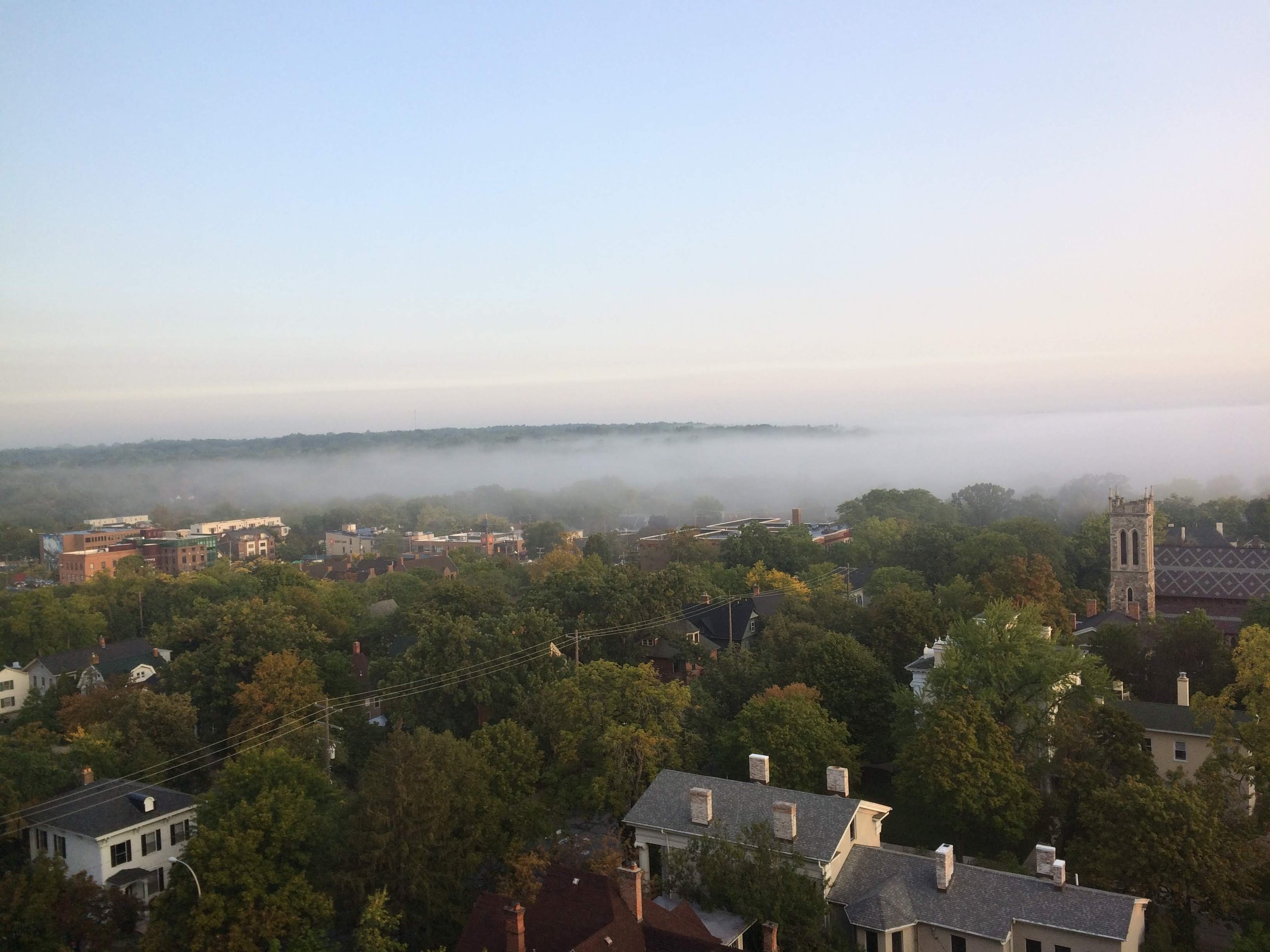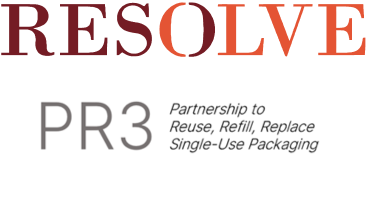Our Work with Communities
Approach
Perpetual supports local communities in their desire for reusable foodware systems that are safe, accessible, immersive, and economically sustainable. Perpetual is working with four smaller U.S. cities to design and implement city-scale open-loop reusable foodware systems.
In each city, Perpetual has a local partner with strong ties to the community that leads the on-the-ground work and is responsible for local stakeholder and community engagement. In order to design reuse systems that can both represent and work for the communities in which they operate, they should be locally grown and designed with local input. Although there are best practices that should be deployed across all reuse systems, system design should represent the values of the community and be optimized for its inhabitants. Perpetual and its local partners conduct a series of community-led design workshops in each city with community members, businesses, local mission-driven organizations, and other interested stakeholders to inform the reuse system design for that municipality.
Our four partner cities are:
Our Process
Perpetual partners with local nonprofits and community organizations to establish city-scale reusable foodware systems. Once a local partner(s) is confirmed, we conduct an Ecosystem Mapping to identify key characteristics of a city/county, understand the local geography, tourism flows, climate and weather, key languages, and more. Additionally, our partners at the University of Georgia’s Circularity Informatics Lab conduct their Circularity Assessment protocol, which provides information about the current material and waste flows and existing systems for managing them.
The Design Phase begins with a series of interactive Community Design Workshops, offered in person and virtually, and including food and drink, child care and participation stipends for people who need them. During the Design Phase, the insights from local community engagement are synthesized with learnings from corporate engagement on requirements for reuse systems, identification of local assets, such as underutilized dishwashing facilities or transport vehicles, optimization of asset location and vehicle routing, in partnership with the Data Science Institute at the University of Chicago, and testing different design configurations through our Life Cycle Assessment parametric model, developed by independent academic LCA experts at the University of Michigan’s Center for Sustainable Systems. The system design is also vetted by behavioral scientists as well as standards organization PR3.
The governance model determined through the Design Phase determines the details for the System Setup phase, including mobilizing funding from public and private sources for reuse infrastructure and assets, how reuse service providers will collaborate within the system, the pricing model for participating businesses, and the mechanism by which the community will continue to have a voice in how the system is operated.
In the Pre-Launch Phase we set the stage for a successful system launch through educational campaigns, community outreach, staff training, and extensive system testing. The system is then publicly launched with hands-on support mobilized through local partners and Perpetual to ensure the first few weeks run smoothly and help everyone learn about the new system.
Following the launch of the system, Perpetual and the local partners will continue to support the success of the system as it gains adoption and grows. This will include identifying operational improvements as well as regularly reviewing economic and impact reporting.
Perpetual intends for these four city/county reuse systems to provide models for establishing reuse systems in other cities and counties as well. To this end, Perpetual will provide templates, tools and other resources to help other cities.
Workstreams
Perpetual has multiple workstreams that come together to drive the process of establishing reusable foodware systems in each partner city. These include:
Interactive Community Design Process
Working closely with local partners, craft and conduct a series of in-person and virtual opportunities for community members to come together to provide feedback, with special attention to ensuring that these workshops and meetings are accessible to all members of the community by providing food, child care and participation stipends for those who need them. These opportunities include going to existing group meetings as well as holding dedicated workshops and discussion sessions.
Financial Modeling
Drawing on the best data available, Perpetual is using a custom-built financial model to explore the economics of reuse systems, including up-front investment costs, unit economics for the reuse system at different levels of scale and volume, the impact of adoption and return rates on profitability, and what needs to be true to ensure the long-term economic sustainability for the system.
Reuse Capabilities Landscape
Perpetual closely tracks the progress of existing reuse service providers to stay up to date on the status of emerging technology and asset tracking solutions, cup and container designs, washing capabilities, and other relevant developments in the frontier of reuse solutions. This ensures that the System Design builds on the best available solutions and does not specify requirements for a system that is not able to be built today.
Behavioral Research
Perpetual is conducting rigorous behavioral studies to understand attitudes and behaviors about reuse. This research will be used to inform messaging towards both consumers and businesses to ensure program adoption and uptake. Research will be conducted prior to and following system launch to measure how attitudes towards reuse and the circular economy may have shifted due to exposure to a city-scale reusable foodware system.
Ideally, reusable foodware systems would serve all restaurant and foodservice businesses in a community, including local, regional and corporate. In order to understand the needs of corporate and institutional food and beverage companies so that the system design can accommodate them as well, Perpetual is engaging with beverage companies; food service providers for campuses and cafeterias; grocery and retail chains; convenience store chains, hotels and resorts; and quick service restaurants (QSR).
Mobilizing Public and Private Funding
Establishing reuse systems requires significant capital. In addition to raising philanthropic funding for local partners, Perpetual is working to mobilize both public and private funding to support this transition. Reuse infrastructure such as high through-put dishwashing machines, indoor and outdoor collection bins, and transport vehicles, is investable and can be funded by investment capital or grants. To support adoption of reuse, Perpetual is also working to provide funding to local businesses, local community organizations such as Meals on Wheels and other food access programs, and schools to cover their costs of transitioning to the reuse system.
Governance
Perpetual is exploring governance models to ensure that communities have input into how local reuse systems operate while allowing for multi-player, technically advanced and integrated systems to flourish and grow.
Academic Partners
-

CENTER FOR SUSTAINABLE SYSTEMS
Dr. Gregory A. Keoleian and his team at the Center for Sustainable Systems are partnering with Perpetual to use their parametric Life Cycle Assessment (LCA) model to determine the environmental sustainability of various system design criteria across Perpetual’s four cities. Their model compares single-use and reusable container systems and is being adapted to measure the impacts of city-scale systems with centralized washing facilities. The model allows for scenario analysis that assesses multiple parameters in the system including use of transportation, washing, electricity grid, and end of life.
-

THE CIRCULARITY INFORMATICS LAB
Dr. Jenna Jambeck and her team at the Circularity Informatics Lab are partnering with Perpetual to complete a Circularity Assessment Protocol (CAP) in each community before and after implementation of reusable foodware system. The CAP is a hub and spoke model that provides a snapshot of a city’s circularity that can provide data for regional decision-making to reduce leakage of waste (e.g. single-use plastic) into the environment and increase circular materials management.
-

DATA SCIENCE INSTITUTE
Rahim Rasool and his team from the Data Science Institute are completing city ecosystem mapping for each of Perpetual’s four cities, which will be used for volume modeling and optimizing reuse asset placement and collection routes.
Program Partners
U.S. EPA Trash Free Waters
EPA's Trash Free Waters program's mission is to prevent trash from getting into our waterways and remove trash that is already in the environment. Garbage polluting rivers, lakes, streams, and creeks is known as “aquatic trash”. If it is not properly disposed of or securely contained, garbage can easily become aquatic trash. In fact, the majority of trash found in our waterways and oceans originates on land. Trash Free Waters improves the health of our nation’s waterways and communities by fostering effective partnerships, providing informational resources, and facilitating shared learning. To prevent and remove aquatic trash, they work with partners in support of community and place-based projects that address the major sources of aquatic trash, which include intentional litter and escaped trash.
PR3
Single-use packaging is a primary cause of the plastic and climate crises. Reuse is the most effective solution. PR3’s mission is to enable and accelerate the alignment and scaling of reuse systems around the world. Over three years, drawing on input from across the value chain, PR3 created system design standards meant to align returnable packaging –regardless of producer– with shared infrastructure for collection, washing, and transport. Through this work, PR3 has become a hub for solutions in the global plastic reduction and reusable packaging systems space. PR3 is now seeking American National Standard designation for its standards. We are convening a consensus body, with representatives from industry, government, and civil society, to refine and approve the standards following the American National Standards Institutes’ Essential Requirements.







